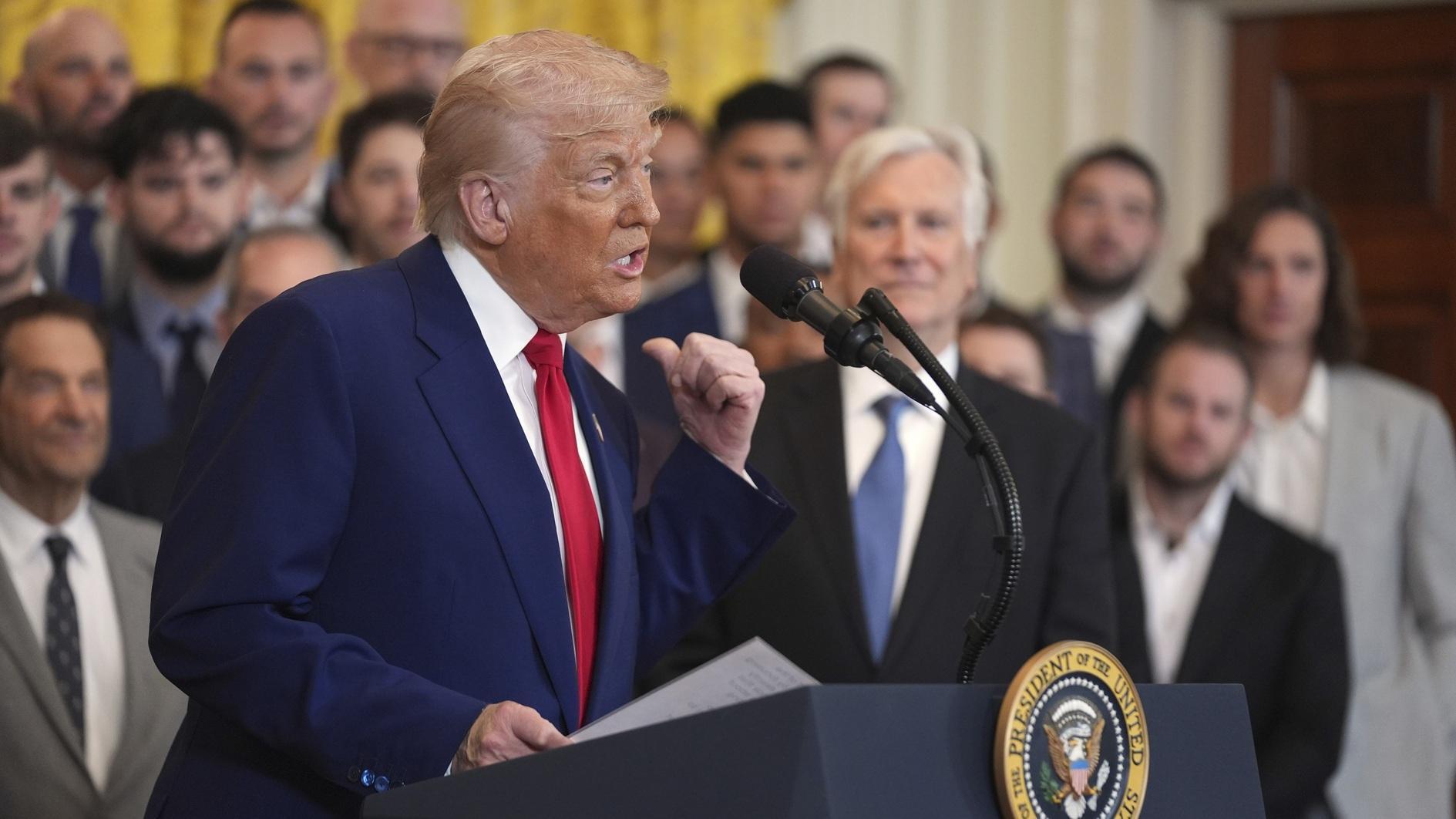
U.S. President Donald Trump on April 7 threatened huge additional tariffs on imports from China if Beijing did not withdraw its retaliation plans, adding that Washington would begin negotiations with other countries that want them.
"If China does not withdraw its 34 percent increase above their already long term trading abuses by tomorrow, April 8th, 2025, the United States will impose ADDITIONAL Tariffs on China of 50 percent, effective April 9th," Trump said in a Truth Social post.
Beijing has issued countermeasures after Trump announced another sharp tariff hike on goods from the world's second biggest economy last week.
Since returning to the presidency, Trump has imposed 20 percent added duties on Chinese imports over its alleged role in the fentanyl supply chain.
A fresh 34 percent levy on the country's products is due to kick in on April 9, bringing the added rate this year to 54 percent.
Trump refuses to back down of tariffs as markets reel
Panic selling gripped global markets as U.S. President Donald Trump refused to budge on his swingeing tariffs despite China retaliating and global recession warnings growing louder.
Countries across the world have been scrambling to blunt the edge of the new U.S. tariffs, but Beijing signalled it was taking the levies head on, escalating the trade war between the world's two biggest economies.
Trump doubled down on his demand to slash deficits with the U.S.' trading partners, saying he would not cut any deals unless that was resolved.
"Sometimes you have to take medicine to fix something," Trump said.
He told reporters aboard Air Force One that world leaders are "dying to make a deal."
Trump announced last week a baseline 10-percent import tariff on goods coming into the United States and higher rates for many countries including allies the European Union, Japan and Taiwan.
Most countries have stopped short of retaliating but China announced retaliatory tariffs of 34 percent on all U.S. goods from April 10.
"[This] is blunt-force economic warfare," said Stephen Innes at SPI Asset Management.
"The market's telling you in plain language: global demand is vanishing, and a global recession is on the cards and coming on fast," Innes said.
Trillions of dollars have been wiped off stocks worldwide, and yesterday Asian equities took an even heavier hammering as investors moved to safer assets.
In Japan the Nikkei was off an eye-watering 6.5 percent, falling almost eight percent in early trade.
In Hong Kong the Hang Seng plunged almost 10 percent and the Shanghai Composite more than four percent.
U.S. oil dropped below $60 a barrel for the first time since April 2021 on worries of a global recession.
Britain's Prime Minister Keir Starmer warned in a newspaper op-ed that "the world as we knew it has gone," saying the status quo would increasingly hinge on "deals and alliances."
Trump's staggered deadlines have left space for some countries to negotiate, even as he insisted he would stand firm and his administration warned against any retaliation.
"More than 50 countries have reached out to the president to begin a negotiation," Kevin Hassett, head of the White House National Economic Council, told ABC's This Week on April 6, citing the US Trade Representative.
Treasury Secretary Scott Bessent also told NBC's Meet the Press that 50 countries had reached out.
But as for whether Trump will negotiate with them, "I think that's a decision for President Trump," Bessent said.
"At this moment he's created maximum leverage for himself... I think we're going to have to see what the countries offer, and whether it's believable," Bessent said.
Trump has long insisted that countries around the world that sell products to the United States are in fact ripping Americans off, and he sees tariffs as a means to right that wrong.
"Some day people will realize that Tariffs, for the United States of America, are a very beautiful thing!" Trump wrote on Truth social on April 6.
But many economists have warned that tariffs are passed on to US consumers and that they could see price rises at home.
"I don't think that you're going to see a big effect on the consumer in the U.S.," Hassett said.